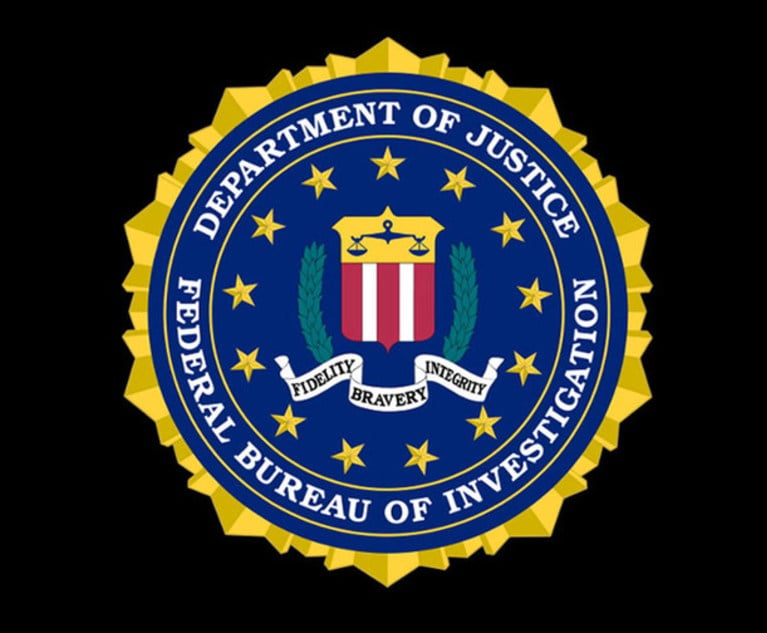How New Jersey Helped Desegregate the US Military
Unlike most civil rights struggles, these events did not occur in the South, the Supreme Court, or the White House. Instead, this story begins in the armories of the New Jersey Army National Guard.
October 04, 2019 at 12:00 PM
6 minute read
 Benjamin Haas – Fotolia
Benjamin Haas – Fotolia
On July 26, 1948, President Truman issued Executive Order 9981. This action abolished discrimination "on the basis of race, color, religion or national origin" in the United States Armed Forces. This decision eventually resulted in the desegregation of the entire US military. Historians praise Truman for his foresight but generally overlook the role New Jersey played in driving this historic accomplishment.
Executive Order 9981 reads:
It is hereby declared to be the policy of the President that there shall be equality of treatment and opportunity for all persons in the armed services without regard to race, color, religion or national origin. This policy shall be put into effect as rapidly as possible, having due regard to the time required to effectuate any necessary changes without impairing efficiency or morale.
African Americans, Hispanic Americans, Native Americans, and Asian Americans made incredible contributions to the United States military prior to 1948. The general public is becoming increasingly aware of these achievements through popular films such as "The Tuskegee Airmen." Likewise, Americans are becoming familiar with the history of the Navajo Code Talkers, the Nisei 442nd Regimental Combat Team, and the 65th Infantry "Borinqueneers." Regardless of one's views about America's foreign policy, the United States Military is an organization where people of any background can expect to be judged based on individual merit.
Modern scholarship has celebrated the role of President Truman's "stroke of the pen" executive order. This is sometimes contrasted with the more gradual pace of legislative and judicial action. Other scholars have correctly identified the important role of civil rights groups led by A. Philip Randolph such as the League for Non-Violent Civil Disobedience Against Military Segregation.
This scholarship is significant, but it is also far from complete. Remarkably, most historians ignore the full story surrounding the events leading up to Executive Order 9981. This forgotten historical drama illustrates how States can use federalism to fight federally-mandated racism. Unlike most civil rights struggles, these events did not occur in the South, the Supreme Court, or the White House. Instead, this story begins in the armories of the New Jersey Army National Guard.
In 1947 New Jersey approved a new Constitution which included the following language:
No qualified person shall be denied any civil or military right, nor be discriminated against in exercise of any civil or military right, nor be segregated in the militia or in the public schools because of religious principles, race, color, ancestry or national origin.
The federal National Guard Bureau had recently organized a new unit in New Jersey, the 372nd Anti-Aircraft Artillery group, entirely of black soldiers. Clearly, this new unit was illegal under the New Jersey Constitution. The New Jersey Military Affairs Committee, New Jersey Governor Alfred E. Driscoll, as well as the commanding and adjutant generals of the New Jersey National Guard all pushed back against this federally-mandated segregation. On Oct. 24, 1947, Gov. Driscoll announced this new unit would not be composed on the basis of race and that any segregated armories would be integrated effective immediately.
On Dec. 3, 1947, Driscoll declared, "All of our citizens must be given the opportunity to enlist in the New Jersey units of the National Guard and participate in any of its activities for which each individual is considered qualified."
This was in direct violation of the official War Department policy of the time that "negro manpower will be employed in negro regiments or groups, battalions or squadrons, troops or batteries."
Over the next several months Driscoll, along with generals from the New Jersey National Guard, engaged in a fascinating back-and-forth with the National Guard Bureau, Secretary of Defense James V. Forrestal, and the Secretary of the Army Kenneth C. Royall.
An exchange between Driscoll and Royall in January and February of 1948 is particularly illustrative. "Your telegram which I have just received does not suffice for my wire to Secretary of Defense," said Driscoll. "It will be necessary for any National Guard units placed under the supervision of New Jersey authority to comply fully with both the spirit and the letter of our constitution."
It was only under increasing pressure from New Jersey that President Truman announced he had "instructed the Secretary of Defense to take steps to have the remaining instances of discrimination in the armed services eliminated as rapidly as possible," on Feb. 2, 1948.
On Feb. 7, Royall replied to Gov. Driscoll: "I recognize the importance to a sovereign state of a constitutional provision such as yours, and I have determined that for the present, Army militia units of New Jersey, if otherwise qualified, will not be denied Federal recognition on the ground of non-segregation."
The New Jersey Department of Defense published General Order Number 4 on Feb. 12, 1948, stating: "no qualified person shall be denied any military rights, nor be discriminated against in exercise of any military rights, nor be segregated in the militia because of religious principles, race, color, ancestry or national origin." On March 17, 1948, the newly created United States Air Force also formally gave in to the New Jersey Constitution's anti-discrimination provisions.
Gov. Driscoll later reflected on the historical significance of these desegregated military units saying, "That this provision in our basic charter is working smoothly in the National Guard throughout the State, is due entirely to the intelligent understanding of the problem on the part of all our citizens, regardless of color."
Several more months passed until President Truman finally signed the executive order destined to become celebrated by the history books. Royall was eventually forced to retire as Secretary of the Army in 1949 for refusing to fully implement desegregation.
It is tempting to oversimplify history because the full story is usually complicated and often inconvenient. Yet this is precisely why historical details are so indispensable. In 1947-48, leaders engaged in a civilized, non-violent discourse using the rule of law to promote racial equality. New Jersey's Constitution stood alone against the power of the federal government and won.
Today, civility and civics seem to be evolving into mutually exclusive domains. This trend is disconcerting and counterproductive. Fortunately, we have a forgotten chapter from New Jersey's legal history which is well-worth remembering.
Patrick McKnight is a law clerk at Wilson Elser Moskowitz Edelman & Dicker in Philadelphia. He is in his final year of the JD/MBA program at Rutgers.
This content has been archived. It is available through our partners, LexisNexis® and Bloomberg Law.
To view this content, please continue to their sites.
Not a Lexis Subscriber?
Subscribe Now
Not a Bloomberg Law Subscriber?
Subscribe Now
NOT FOR REPRINT
© 2025 ALM Global, LLC, All Rights Reserved. Request academic re-use from www.copyright.com. All other uses, submit a request to [email protected]. For more information visit Asset & Logo Licensing.
You Might Like
View All
3rd Circuit Strikes Down NLRB’s Monetary Remedies for Fired Starbucks Workers


As Trafficking, Hate Crimes Rise in NJ, State's Federal Delegation Must Weigh in On New UN Proposal
4 minute read
Trending Stories
- 1'It's Not Going to Be Pretty': PayPal, Capital One Face Novel Class Actions Over 'Poaching' Commissions Owed Influencers
- 211th Circuit Rejects Trump's Emergency Request as DOJ Prepares to Release Special Counsel's Final Report
- 3Supreme Court Takes Up Challenge to ACA Task Force
- 4'Tragedy of Unspeakable Proportions:' Could Edison, DWP, Face Lawsuits Over LA Wildfires?
- 5Meta Pulls Plug on DEI Programs
Who Got The Work
Michael G. Bongiorno, Andrew Scott Dulberg and Elizabeth E. Driscoll from Wilmer Cutler Pickering Hale and Dorr have stepped in to represent Symbotic Inc., an A.I.-enabled technology platform that focuses on increasing supply chain efficiency, and other defendants in a pending shareholder derivative lawsuit. The case, filed Oct. 2 in Massachusetts District Court by the Brown Law Firm on behalf of Stephen Austen, accuses certain officers and directors of misleading investors in regard to Symbotic's potential for margin growth by failing to disclose that the company was not equipped to timely deploy its systems or manage expenses through project delays. The case, assigned to U.S. District Judge Nathaniel M. Gorton, is 1:24-cv-12522, Austen v. Cohen et al.
Who Got The Work
Edmund Polubinski and Marie Killmond of Davis Polk & Wardwell have entered appearances for data platform software development company MongoDB and other defendants in a pending shareholder derivative lawsuit. The action, filed Oct. 7 in New York Southern District Court by the Brown Law Firm, accuses the company's directors and/or officers of falsely expressing confidence in the company’s restructuring of its sales incentive plan and downplaying the severity of decreases in its upfront commitments. The case is 1:24-cv-07594, Roy v. Ittycheria et al.
Who Got The Work
Amy O. Bruchs and Kurt F. Ellison of Michael Best & Friedrich have entered appearances for Epic Systems Corp. in a pending employment discrimination lawsuit. The suit was filed Sept. 7 in Wisconsin Western District Court by Levine Eisberner LLC and Siri & Glimstad on behalf of a project manager who claims that he was wrongfully terminated after applying for a religious exemption to the defendant's COVID-19 vaccine mandate. The case, assigned to U.S. Magistrate Judge Anita Marie Boor, is 3:24-cv-00630, Secker, Nathan v. Epic Systems Corporation.
Who Got The Work
David X. Sullivan, Thomas J. Finn and Gregory A. Hall from McCarter & English have entered appearances for Sunrun Installation Services in a pending civil rights lawsuit. The complaint was filed Sept. 4 in Connecticut District Court by attorney Robert M. Berke on behalf of former employee George Edward Steins, who was arrested and charged with employing an unregistered home improvement salesperson. The complaint alleges that had Sunrun informed the Connecticut Department of Consumer Protection that the plaintiff's employment had ended in 2017 and that he no longer held Sunrun's home improvement contractor license, he would not have been hit with charges, which were dismissed in May 2024. The case, assigned to U.S. District Judge Jeffrey A. Meyer, is 3:24-cv-01423, Steins v. Sunrun, Inc. et al.
Who Got The Work
Greenberg Traurig shareholder Joshua L. Raskin has entered an appearance for boohoo.com UK Ltd. in a pending patent infringement lawsuit. The suit, filed Sept. 3 in Texas Eastern District Court by Rozier Hardt McDonough on behalf of Alto Dynamics, asserts five patents related to an online shopping platform. The case, assigned to U.S. District Judge Rodney Gilstrap, is 2:24-cv-00719, Alto Dynamics, LLC v. boohoo.com UK Limited.
Featured Firms
Law Offices of Gary Martin Hays & Associates, P.C.
(470) 294-1674
Law Offices of Mark E. Salomone
(857) 444-6468
Smith & Hassler
(713) 739-1250






